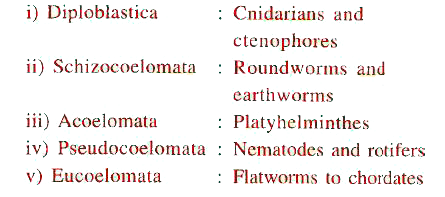Which of the following is correct?
1+i>2−i
2+i>1+i
2−i>1+i
none of these
The correct Answer is:D
To solve the question "Which of the following is correct?" regarding complex numbers, we need to analyze the options provided. Since the options are not specified in the question, we will focus on the general principles of comparing complex numbers.
1. Understanding Complex Numbers:
A complex number is generally represented as z=a+bi, where a is the real part and b is the imaginary part.
2. Equality of Complex Numbers:
Two complex numbers z1=a1+b1i and z2=a2+b2i are equal (denoted as z1=z2) if and only if their real parts are equal and their imaginary parts are equal. This can be expressed as:
a1=a2andb1=b2
3. Comparison of Complex Numbers:
It is important to note that complex numbers cannot be compared using greater than (>) or less than (<) signs. This is because there is no natural ordering for complex numbers like there is for real numbers. Thus, statements like z1>z2 or z1<z2 are not valid.
4. Analyzing the Options:
Given the principles above, if the options include statements about comparing complex numbers using greater than or less than, those statements would be incorrect. The only valid comparison is equality.
5. Conclusion:
If the options state that complex numbers can be compared using greater than or less than signs, then those options are incorrect. The correct option would be one that states that none of the above comparisons are valid or that complex numbers can only be compared using equality.
Final Answer:
The correct answer is option four: "None of the above."
---
A complex number is generally represented as z=a+bi, where a is the real part and b is the imaginary part.
Two complex numbers z1=a1+b1i and z2=a2+b2i are equal (denoted as z1=z2) if and only if their real parts are equal and their imaginary parts are equal. This can be expressed as:
a1=a2andb1=b2
It is important to note that complex numbers cannot be compared using greater than (>) or less than (<) signs. This is because there is no natural ordering for complex numbers like there is for real numbers. Thus, statements like z1>z2 or z1<z2 are not valid.
Given the principles above, if the options include statements about comparing complex numbers using greater than or less than, those statements would be incorrect. The only valid comparison is equality.
If the options state that complex numbers can be compared using greater than or less than signs, then those options are incorrect. The correct option would be one that states that none of the above comparisons are valid or that complex numbers can only be compared using equality.
The correct answer is option four: "None of the above."
Topper's Solved these Questions
- COMPLEX NUMBERS BOOK - OBJECTIVE RD SHARMA ENGLISHCHAPTER - COMPLEX NUMBERS EXERCISE - Chapter Test
58 Videos
- COMPLEX NUMBERS BOOK - OBJECTIVE RD SHARMA ENGLISHCHAPTER - COMPLEX NUMBERS EXERCISE - Section II - Assertion Reason Type
15 Videos
- CIRCLESBOOK - OBJECTIVE RD SHARMA ENGLISHCHAPTER - CIRCLESEXERCISE - Chapter Test
53 Videos
- CONTINUITY AND DIFFERENTIABILITYBOOK - OBJECTIVE RD SHARMA ENGLISHCHAPTER - CONTINUITY AND DIFFERENTIABILITYEXERCISE - Exercise
87 Videos
Similar Questions
Which of the following are correct ?
View SolutionWhich of the following are correct
View SolutionWhich of the following are correct?
View SolutionWhich of the following are correct
View SolutionWhich of the following are correct ?
View SolutionWhich of the following are correct?
View SolutionWhich of the following are correct statements?
View SolutionWhich of the following are correct ?

View SolutionWhich of the following are correct?
View SolutionWhich of the following are correct :
View Solution
